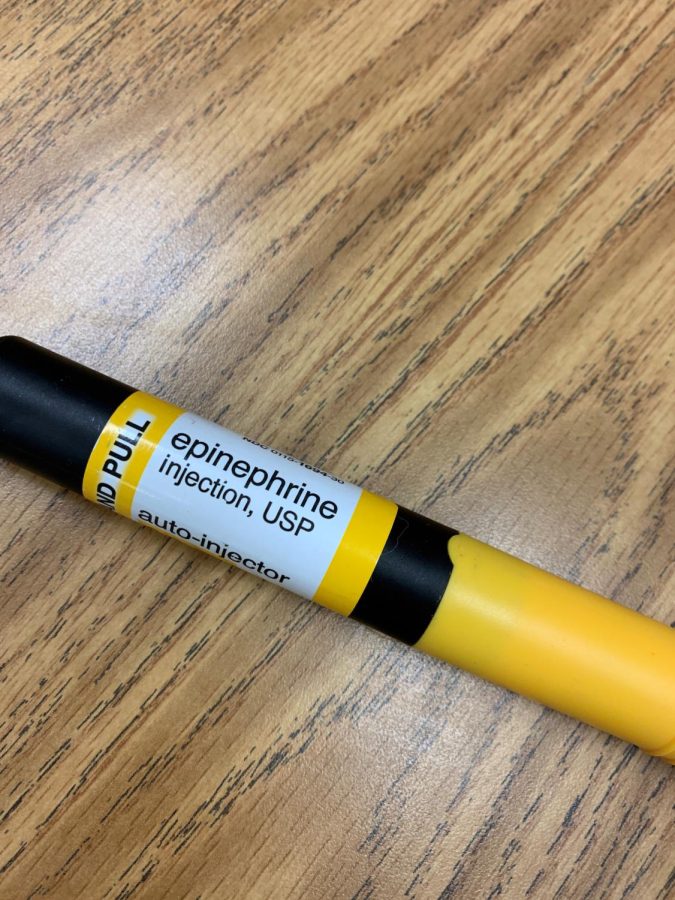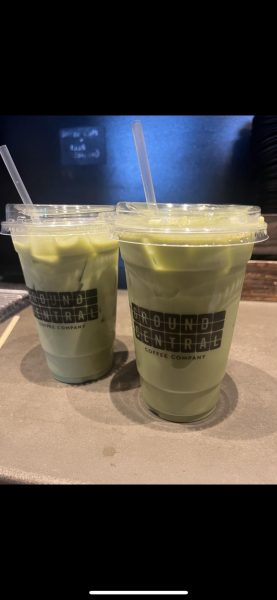Surviving with a Severe Allergy: A Personal Account
This EpiPen is a life-saving medical necessity for people who suffer from severe allergies such as Jillian Weston.
When I was born, I was fed formula, as many normal babies are. Unfortunately, I was not a normal baby. Whenever I had baby food made with dairy, I would throw up. Once, when I was about one year old, I ate something with dairy and touched my eyes. Then, my eyelids swelled up to twice their size. My parents, panicked, called the doctor, who said I should get an allergy test. The results of the test changed my life forever: I was allergic to dairy.
Growing up with a severe allergy made me mature faster than most other children my age: I always had to read ingredient labels two or three times before eating any pre-packaged products, I could not have cake or pizza at my friends’ birthday parties, and I could only have two or three options on a restaurant menu of 25 dishes. Now that my allergy has grown more severe, I am unable to eat out at all. I am also not allowed to eat products that are produced by large companies such as Lay’s or Pringles, as the products may be made in facilities that use dairy.
The worst part of my allergy is the threats. At the age of 15, I still get threats from kids in school like, “I hope you eat milk and die.” People would often offer me foods with dairy in them on purpose. When I was in second grade, I was sitting at my lunch table, and my friend got mad at me. They grabbed their cheese sandwich and started to crumble it on my skin, knowing I would have an allergic reaction. I did not use my voice to speak back, and I regret that now.
In fourth grade, I was accepted into a medical study in which I would wear a patch on my back for 24 hours. The patch would contain milk that would absorb into my bloodstream. This caused my skin to inflame, break out in hives, scab, and itch until I bled. Every six months, I had to travel into New York City to go to the hospital where the study took place. I would have to wait in a bed, and every 20 minutes, the doctors would make me drink a banana smoothie containing dairy. I was fed an increasingly amount of smoothie until I was doubled over in pain. My stomach would ache so badly that I had to sit near a toilet just in case I threw up. My throat would feel enclosed, and my tongue would tingle like crazy. The doctors kept introducing more and more dairy into my body, even though I refused. I would sob and sob until they stopped, begging for my EpiPen because I was in so much pain. Then, I would have a room of four or five doctors crowd around me, taking notes about how I reacted to the EpiPen. My heart would feel like it was running on a treadmill, and the injection site would form a bruise around it. After, I would go home and do my homework like nothing had happened because it was normal for me to experience this pain.
The worst reaction I ever had was when I had to stay overnight in a hospital. My stomach was in terrible pain, and I had thrown up to the point where there was no food left in my body. A doctor came in and asked why I came to the hospital for a lactose intolerance reaction. I told him I am not lactose intolerant and that I have a severe dairy allergy. He told me that he has never heard of such a thing, and I should have not come to the hospital since it was not life-threatening.
I was so upset that I had a doctor who did not understand my condition. I yelled for a new doctor and would not stop crying until I got one. Moments later, my throat started to close again, and my body broke out in hives. I was having a second reaction and had to get the EpiPen a second time. I was then transferred to a children’s hospital and stayed overnight. I had so many different wires attached to me that it took 10 minutes just to unhook everything, go to the bathroom, and hook everything back up. Each hour, the doctors had to inject steroids into my IV while I was asleep. I would wake up to a salty feeling in my tongue and an achy feeling at my IV site.
Living with an allergy has taught me many lessons that most people never have the opportunity to learn. I know how to inject myself with an EpiPen, and I also know how to speak with doctors and nurses about my medical history. I know how to stick to a dairy-free lifestyle and how to talk to chefs about my allergy. Sticking to my diet can be very challenging; my friends have tried it before and could not even stick to it for five minutes. Whenever I tell people I have a dairy allergy, they tend to feel bad for me. When I was younger, I used to feel insecure about my allergy, but now I have grown and learned how to survive with it – and it has made me into the person I am today.






















